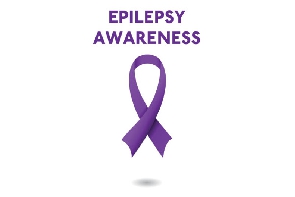Roughly 65 million individuals worldwide suffer from epilepsy, a neurological illness marked by recurring seizures. The disorder has an impact on women that goes beyond the convulsions themselves.
Comprehending the ways in which menstruation, pregnancy, and hormonal fluctuations interact with epilepsy is essential to delivering holistic treatment and assistance to women with the disease. For certain epileptics, the hormonal swings that occur during a woman's menstrual cycle can affect how frequently she has seizures.
According to research, variations in progesterone and estrogen levels may affect seizure thresholds and cause certain women to have more seizures during particular stages of their cycles. But not everyone experiences this, and there are personalized and complex relationships between hormones and epilepsy.
Patients should talk to their healthcare practitioner if they observe a trend in the relationship between their menstrual cycle and seizure episodes. Maintaining a seizure journal that documents seizure activity and cycle stages can yield important data for customizing treatment regimens. Pregnancy is one of the most important times for women with epilepsy. Pregnancy-related worries frequently centre on the possible dangers of using epilepsy drugs and the effects of seizures on the growing fetus.
It is crucial that epileptic women who intend to get pregnant speak with their medical team in advance. While some antiepileptic medications (AEDs) are thought to be safer during pregnancy, others may provide hazards. Medication adjustments might be required to balance seizure control and reduce the baby's risk of injury. For women who have epilepsy, contraception is a crucial factor to consider. Certain AEDs may interfere with hormonal contraceptives, decreasing their efficacy or changing the body's concentration of the medicine. It is recommended that women who have epilepsy consult with their healthcare providers regarding contraception alternatives in order to determine the safest and most effective techniques for their specific needs.
To protect the health of the mother and the unborn child, neurologists, obstetricians, and other medical experts must work together, provide regular prenatal care, and closely monitor the unborn child. Support and education are essential parts of providing care for women with epilepsy, in addition to medical management. Many have particular difficulties, such as stigma, infertility worries, and false beliefs about how the illness affects their capacity to lead happy lives.
Women with epilepsy need support groups, educational materials, and counselling services to help them overcome these obstacles. A friendly environment and proper information can make a big difference in their quality of life. The relationship between epilepsy and women's health is complex and involves several factors, such as how hormones affect seizure patterns and what to expect and deal with during pregnancy. Personalized strategies, vigilant supervision, and a multidisciplinary team are all part of comprehensive care designed to meet the unique requirements of women with epilepsy.
Our goals are to manage seizures, improve the general well-being and quality of life of women with epilepsy, and further research in this area by raising awareness, offering support, and cultivating research. Gaining this objective requires providing people with the information and tools they need.
Health News of Friday, 24 November 2023
Source: Dr Simon Badu

















